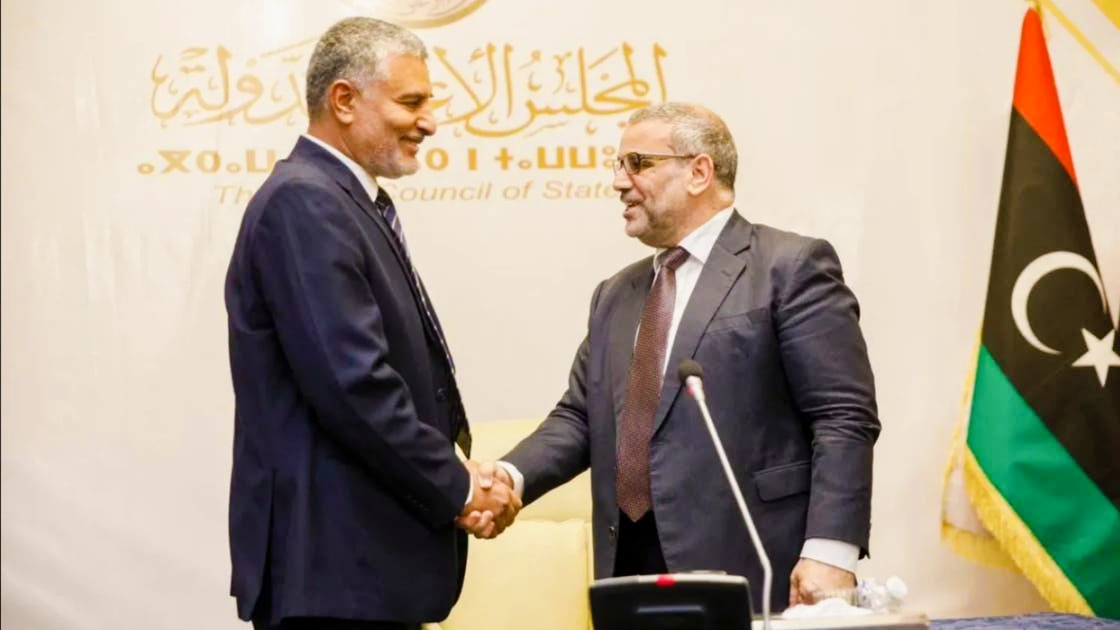In a new development reflecting the depth of political division in Libya, Mohamed Tekalla announced his victory in a third term for the presidency of the Supreme Council of State, following a voting session held yesterday, Sunday, in which he received 59 votes out of 95 members who attended the session.
However, the result did not pass smoothly, as it was met with strong rejection from his rival Khalid Al-Mishri, who questioned the legitimacy of the entire session, affirming that it did not achieve the required legal quorum.
Al-Mishri, absent from the session, described the voting process as "illegitimate," pointing out that the required number of members for its convening should be at least 91, making its results _according to him_ invalid and unrecognized.
On the other hand, Prime Minister of the National Unity Government Abdul Hamid Dbeibah congratulated Tekalla's re-election, considering that the voting reflected the unity and will of the Supreme Council members, in a stance that shows his support for Tekalla against Al-Mishri.
This round of elections reignited the conflict between Tekalla and Al-Mishri, a conflict that began last year when each insisted on their legitimacy in the presidency of the Council.
While Tekalla sees himself as a lawfully elected president, Al-Mishri refuses to accept defeat and insists on his right to lead the Council.
Observers warn that the continuation of this conflict may weaken the Supreme Council of State, one of the most prominent political bodies in Libya, especially given its crucial role in consultations related to the constitutional process and upcoming elections.
This division could also lead to the disintegration of the Council at a sensitive time when the country needs broad consensus to overcome its ongoing political crisis.
What is striking in this scene is the divergence in the positions of the two parties towards the government of Abdul Hamid Dbeibah,
as while Khalid Al-Mishri supports the idea of forming a new unified government in coordination with the parliament, Mohamed Tekalla prefers to keep Dbeibah in power until holding general elections.
Will this disagreement deepen the political division, or will it hasten the finding of a new settlement that opens the way for comprehensive elections to put an end to the chaos and divisions that Libya has been suffering from for years?

